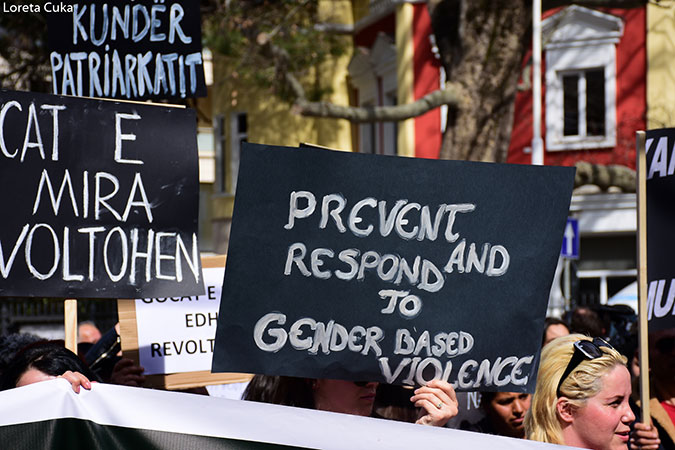Celebrating 40 years in promoting women's rights
Date:

18 of December 2019 marked the 40th anniversary of the UN Convention on the Elimination of all forms of Discrimination against Women (CEDAW). This is one of the core human rights treaties with great influence in improving the life of women and girls worldwide and bringing about major transformation regarding their status and role in society. CEDAW has inspired countries to make meaningful changes and additions in national legislation, policies and measures to protect and promote womens’ rights and gender equality. This includes but is not limited to, political participation, family, education, reproductive health, social care, gender-based violence. It is also an invaluable advocacy and lobby tool for women’s rights organizations to influence policymaking and monitor State’s compliance with CEDAW obligations.
The Convention reaffirms the human rights that women are entitled to enjoy by virtue of being human beings on an equal footing with men. It aims to address unjust gender power balance and harmful stereotypes that are often the root cause of gender inequalities. The CEDAW Convention includes strong standards on effective equality and non-discrimination for all women, which are closely linked to the Sustainable Development Goals related to food, education, health, housing, non-discrimination, legal capacity, political participation and equal family relations.
Despite its adoption 40 years ago, CEDAW has evolved to respond to new developments in society as well as emerging threats to women’s human rights that were not originally included in the treaty. This is made possible by the activity of the CEDAW Committee, which among others, interprets the CEDAW Convention and clarifies the obligations of
Albania is party to the CEDAW Convention since 1994 and ever since the treaty has been the basis of the country’s efforts to tackle discrimination and achieve women empowerment. CEDAW and its Committee have guided Albanian legislation and policies and progress has been achieved in many areas including women participation in public and political life. Nevertheless, a lot more remains to be done to address gender inequalities in the country. Harmful gender stereotypes remain deeply ingrained in the fabric of Albanian society and violence against women is a serious and widespread infringement upon women’s human rights. Additionally, addressing discrimination among rural women and disadvantaged communities should gain more traction.
Albania is expected to review and report on its implementation of the Convention next year. This process provides opportunities for the Government to identify what needs to be improved, while CSOs and national human rights institutions can provide an independent view of the issues and challenges, while also furthering their efforts in advocacy and monitoring of human rights obligations.
UN Women, the mandate of which is grounded on the CEDAW Convention, remains committed to support the Albanian government, civil society and all actors in their efforts to implement and promote the Convention. 18th of December is an important day not only to celebrate the achievements of the women’s rights movement over the last forty years, but particularly to look ahead and reflect on needed progress. This is particularly important for the women and girls in Albania and around the world who still find it difficult to have their voice heard and struggle to achieve the equal status they are entitled to in the society. Making CEDAW’s rights a reality for all women will continue to be one of the main aspirations of UN Women.